Sylvester McCoy became the Seventh Doctor in Doctor Who‘s darkest hour. But what is it about this era that makes it so special?
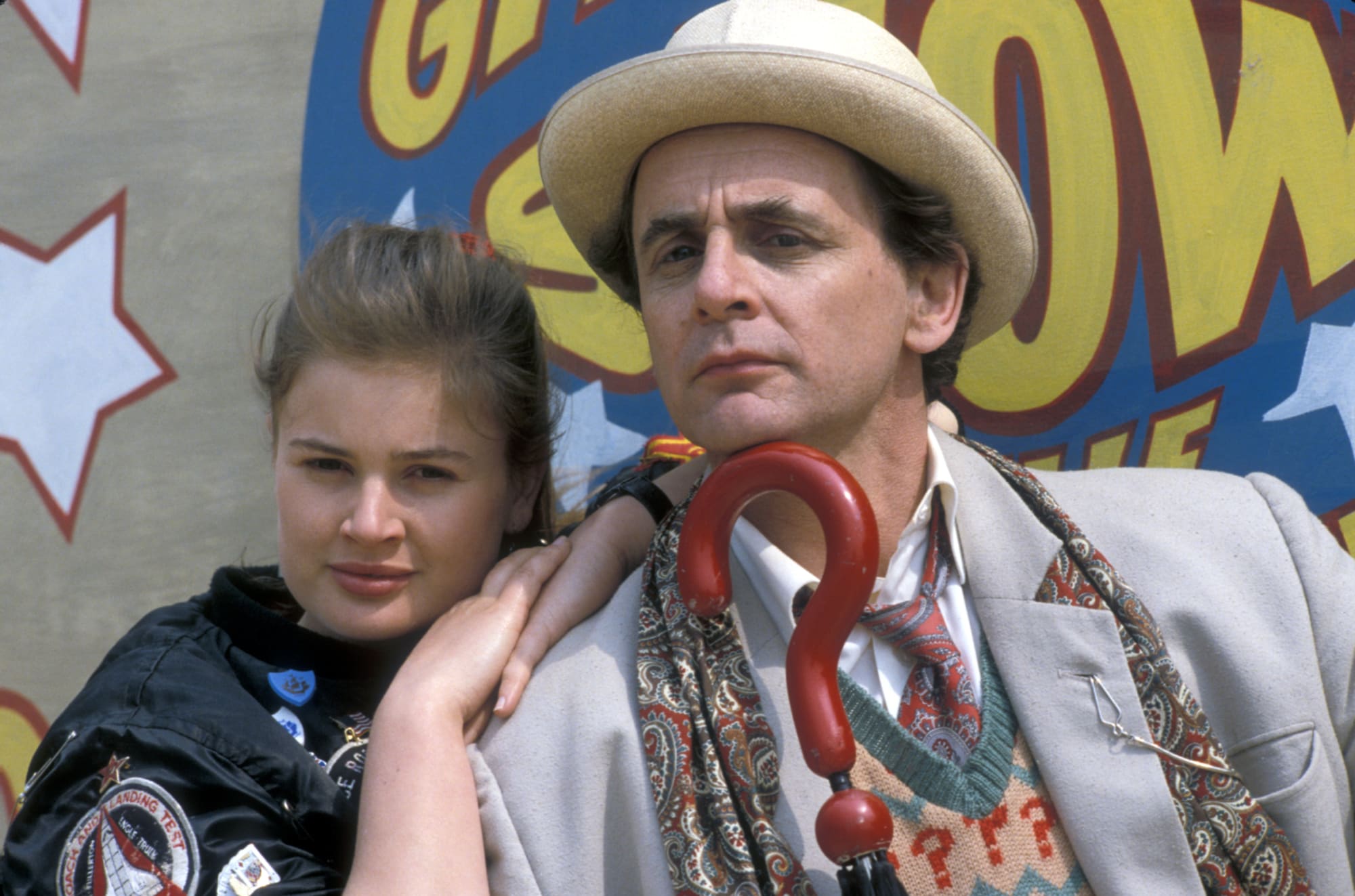
Many readers will already be aware of the turbulence of the Sylvester McCoy era. In fact, a great number will have lived through it! The Seventh Doctor took to the TARDIS at a time when Doctor Who had fallen out of favour at the BBC. The Sixth Doctor Colin Baker had been fired, and the programme’s season length had been seriously curtailed. Moreover, the BBC had taken the controversial decision to schedule Doctor Who opposite the popular ITV soap Coronation Street, causing many an argument in the British living room.
Moreover, the quality of Doctor Who‘s scripts and production values came under heavy fire during the Sylvester McCoy era (although one could argue that Doctor Who has always been subject to this.) Certainly, there was a tonal shift during Sylvester McCoy’s time in the TARDIS, with the production team having been told by the BBC to make the programme more light-hearted and to introduce more comedy.
This wasn’t always easy to achieve. Doctor Who, essentially, was a drama – not a sitcom. And so slapstick humour didn’t always sit well in a programme that was meant to deal with serious alien threats and a nail-biting battle between good and evil.
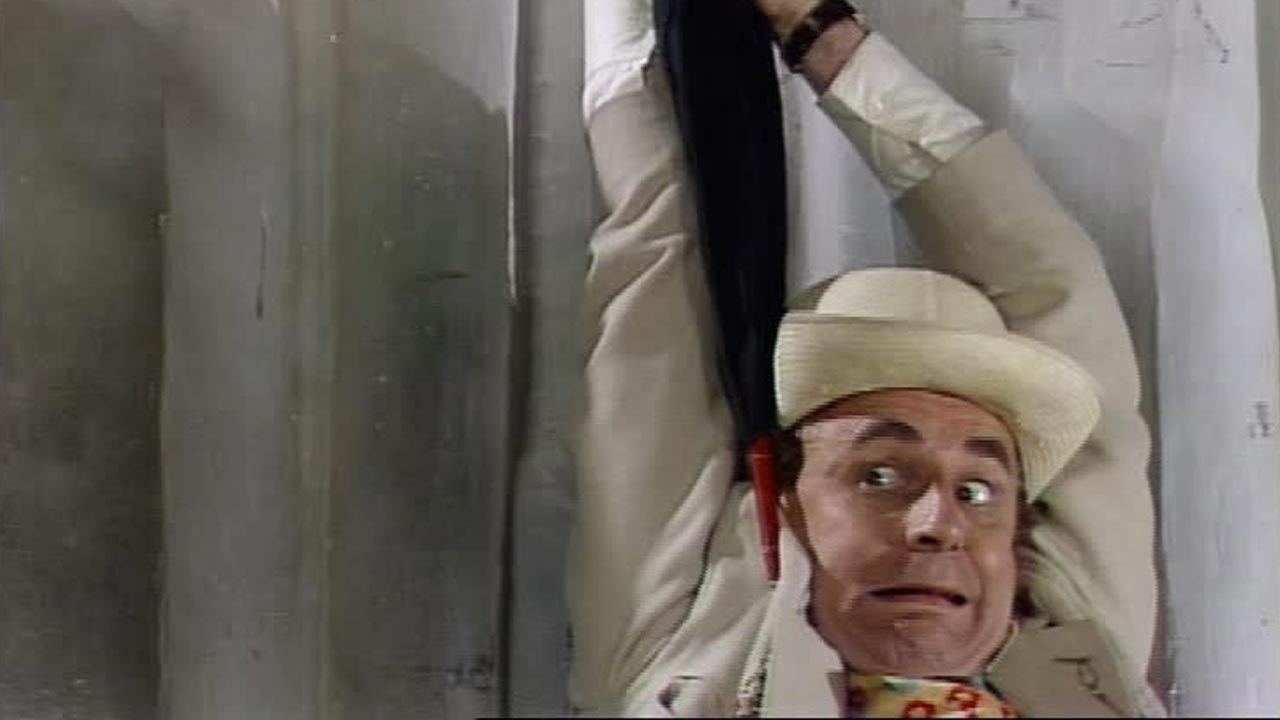
And whilst certain stories such as ‘Time and the Rani‘ and ‘Paradise Towers‘ didn’t have the warmest of receptions on original transmission, they have seen something of a resurgence in recent years, as the Blu-ray re-releases have demonstrated. Certainly, when you look at it, ‘Paradise Towers’ has a thrilling premise – a mysterious tower block in the near future that has fallen into fascism and ruin, where killer machines roam its graffitied corridors and civilisation has been turned over to gang warfare and cannibalism.
It’s a type of science fiction that would become typical of the Virgin novels that would follow the programme’s cancellation in 1989, with the Sylvester McCoy era riffing on much darker SF themes. And although the TV series never went to the lengths that Virgin did, many of its stories (though ostensibly light-hearted on the surface) are some of the darkest ever.
‘The Happiness Patrol,’ for example, is perhaps one of the creepiest of the Sylvester McCoy era (gothic horrors like ‘Ghost Light‘ notwithstanding!) Yes, the serial is a thinly-veiled political satire, and yes its main baddie is a Liquorice Allsort monster who menaces people in a manner which suggests he’s just inhaled a helium balloon. But thematically, ‘The Happiness Patrol’ is unnerving – a society that kills people for not being happy enough is dark stuff, and the fact that it disposes of its citizens in such a sadistic, seemingly joyful way is bleaker still. The victims in this particular Sylvester McCoy story get taken out with sweets that are so delicious they kill people.
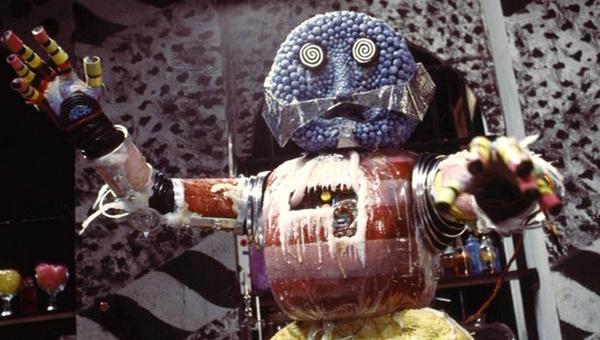
And creepy as ‘The Happiness Patrol’ is, this juxtaposition between the pantomimic and the dystopian is one of the things that makes the Sylvester McCoy era so magical. Other tales such as ‘The Greatest Show in the Galaxy’ are in a similar vein, this time employing killer clowns as the ‘monsters de jour.’ In addition, this serial also marks Doctor Who‘s 25th anniversary, so it’s fourth wall-breaking title adds an extra layer of meaning.
And this is another thing that the Sylvester McCoy era does so well. It draws on the programme’s history in a way that both looks to the programme’s history and paves the way for the future. This was all part of what has now become known as The Cartmel Master Plan – a multi-season agenda which set out to re-establish the mystery and the enigma of Sylvester McCoy’s Doctor by script editor Andrew Cartmel.

Arguably, this master plan peaked with another story from Doctor Who‘s 25th anniversary season, ‘Remembrance of the Daleks.’ Certainly, it was loaded with continuity references that only the most die-hard of fans would get (and it’s essentially a sequel to the very first story ‘An Unearthly Child’) but it was also a thrilling science fiction adventure in its own right.
In ‘Remembrance,’ viewers were given a tantalising insight into the Time Lord’s mysterious past – a few tasty breadcrumbs that spoke into his origins and the foundations of Gallifreyan society, suggesting that he was instrumental in the creation of time travel during the Dark Times of the universe. Throughout this adventure, it is clear that Sylvester McCoy’s Doctor knows more than he is saying, and here he is shown as a master manipulator who is playing two Dalek factions off against each other in order to achieve his own ends. In one particularly startling scene, he even talks a stranded Dalek into taking its own life.
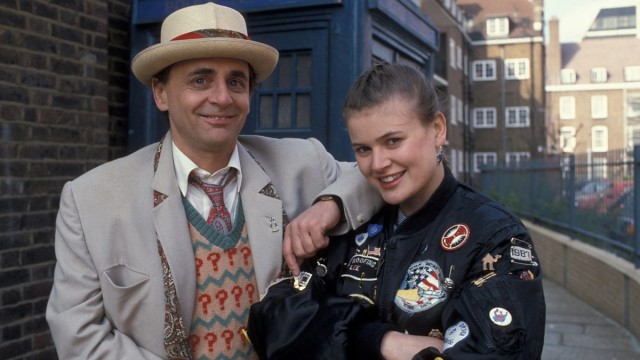
Of course, every Doctor needs a companion, and from Season 25 onwards Sylvester McCoy was paired with Sophie Aldred, who played the Seventh Doctor’s best friend Ace. And she certainly broke the mould as a Doctor Who companion, frequently brandishing a baseball bat (and occasional ghetto blaster) and having a penchant for homemade explosives.
But like Sylvester McCoy’s Doctor, it was clear from the get-go that Ace had a mysterious past, having been swept up in a time storm which had whisked her into the far future where she met the Time Lord, the truth of which wouldn’t be revealed until the Season 26 adventure ‘The Curse of Fenric.’ Indeed, Ace was perhaps the first Doctor Who companion to have any discernible character arc, and in fact this had been planned by the production team – and Sophie Aldred herself – from the start; Ace is certainly a very different person by the time the classic series’ final adventure ‘Survival’ comes around.

As such, the Sylvester McCoy era paved the way for the Doctor Who stories that followed under the guidance of Russell T Davies. It utilised longer, more complex plot arcs, and loaded the Doctor with layers of mystery and ulterior motives. Its stories were grittier and dealt with real people and youth culture, and its characters were more multi-faceted and emotionally-driven. Ace, for example, was forced to confront the reality of her troubled paternal relationships in ‘The Curse of Fenric’ and even (to a lesser extent) her own sexuality in stories such as ‘Battlefield’ and ‘Survival.’
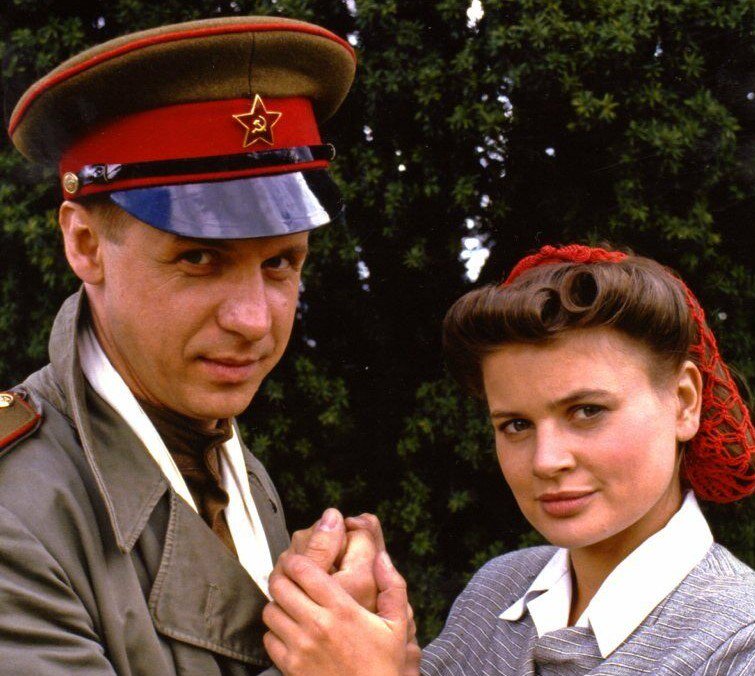
The Sylvester McCoy era, therefore, has left a lasting legacy, and the fact that it plays a key part in ‘The Power of the Doctor‘ (which celebrates the BBC’s centenary, no less) is a testament to its significance. As script editor Andrew Cartmel said on the Season 24 Blu-ray set, in some ways it’s like having the last laugh, as many of the other shows from the late 80s are now “the dust of history.”
What did you enjoy most about the Sylvester McCoy era? And which is your favourite story? Let me know in the comments below.

Sylvester McCoy sweater – order now from the Lovarzi shop!

I can’t decide between The Curse of Fenric or Ghost Light. Both are gripping stories about Ace’s past, & demonstrate what a fascinating character the 7th Doctor is.
I love this era of the show, and Season 26 was just so creative, with Sophie and Sylvester giving fantastic performances!
As someone just beginning to dive into the rabbit hole that is Classic Who, I have to say Doctor No. 7 is now rivalling No. 8 for my “Favourite Doctor” spot. :/